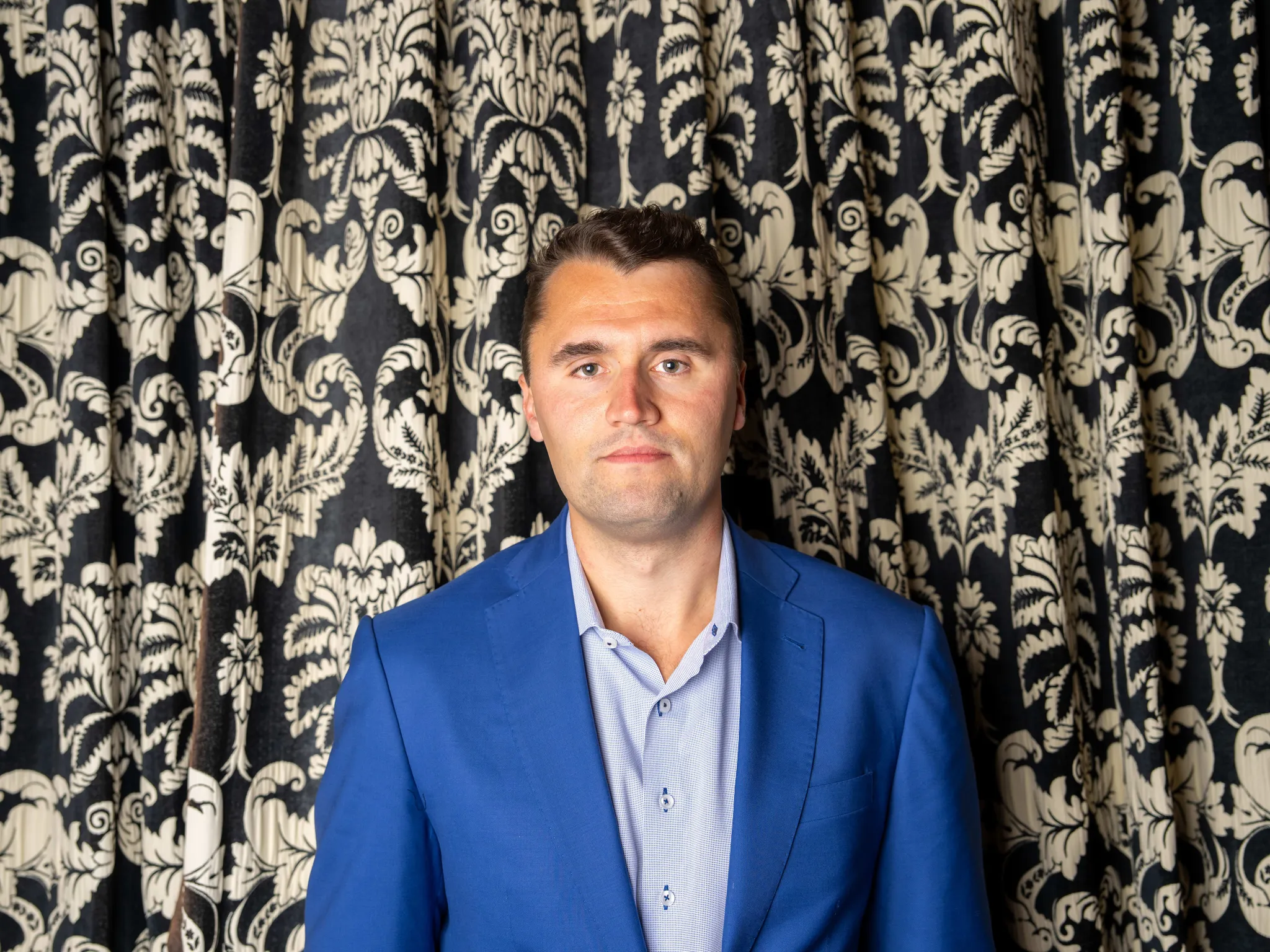September 11, 2025 — On the sunny campus of a college in Utah, where young minds typically engage in debates about the future, thousands of students gathered to hear the voice that has become the soundtrack of conservative America. Charlie Kirk, a charismatic 31-year-old leader of Turning Point USA, stood under a tent bearing the message "Prove that I am wrong," challenging the audience with his signature sharpness. But in an instant when words turned into chaos, a gunshot rang out like thunder in a clear sky: a bullet struck him in the neck, and Kirk's life was cut short before stunned spectators and television cameras.
These chilling images, which immediately spread across social media, are not just shocking — they are etched into the collective memory of a generation of young conservatives for whom Kirk was not merely an activist but a beacon in a stormy sea of political change. As an insider who has watched the rise of right-wing movements in Washington for decades, I can say: Kirk was not an accidental figure. His organization, Turning Point USA, with its millions of dollars in funding from conservative donors like the Koch family, has transformed into a mobilization machine for youth that helped Donald Trump not only return to the White House this year but also reframe the Republican Party as a populist stronghold. Now, regardless of the perpetrator’s motives — whether political hatred or something personal — Kirk becomes a martyr, a symbol who gave his life for the ideals he defended with unwavering fervor.
His style was provocative, almost theatrical: he traveled to universities where leftist views dominate as an unchallenged dogma, engaging in battles criticizing transgender rights, defending the Second Amendment, and exposing, in his view, "cultural Marxism" on campuses. "Violence is a real threat," he repeatedly warned, citing incidents where conservative speakers were disrupted or threatened. And here’s the irony: the one who warned of danger himself became its victim. For his followers, many of whom I met at rallies from California to Florida, Kirk did not just create a movement — he built a community where young people felt part of something bigger than daily politics.
This tragedy is not isolated; it is woven into the fabric of an increasingly fractured American politics, where violence becomes not an exception but the norm. Only this year in Minnesota, two Democratic lawmakers became victims of shootings in their own homes — one of whom died, underscoring how political divisions intrude into private life. Last year, Donald Trump survived two assassination attempts, including that dramatic wound at a rally in Pennsylvania that echoes in the Utah event: an open space, a crowd, bullets that changed the course of history. Add to this the hammer attack on Nancy Pelosi’s husband two years ago or the shooting of Republican congressmen during a baseball practice in 2017 — and the picture looks grim.
Algorithms of platforms like X (formerly Twitter) amplify extremism, turning debates into a war of words, and sometimes actions. The easy access to firearms — a topic Congress has avoided for decades due to NRA lobbying — only fuels the problem. Conservative activists are already talking about tightening security at events, similar to the measures after Minnesota, but as the attempt on Trump in Babbler showed, even elite security is not impenetrable. If society concludes that politics is a "blood sport" where no one is safe, it will undermine the very foundations of democracy, turning it into an arena where victory goes not to the idea but to the bullet.
The reaction was swift and polarized, as is fitting in the Trump era. In a video address from the Oval Office, posted on Truth Social, the president called the killing a "dark moment for America" but quickly shifted to blame "radical leftists," promising investigations into all acts of political violence. These words, as I heard from sources in the White House, were improvisational, but they resonated with the base: activist Christopher Rufo called for "neutralizing" the perpetrators on X, reflecting growing paranoia among the right. Meanwhile, prominent figures from both parties — potential 2028 candidates like Nikki Haley or Gavin Newsom — condemned violence, calling for unity. But the moment of silence in Congress quickly turned into a heated dispute, illustrating how deeply rooted hostility is.
In Utah, Governor Spencer Cox, whom I know as a rare voice of reason in the Republican Party, held an emotional press conference, reminding about the upcoming 250th anniversary of independence. "Is this really it? After 250 years, have we come to this?" he asked, his voice tinged with despair I have heard from many leaders in private conversations. The country is preparing for the anniversary but appears broken: political hatred, exacerbated by the pandemic and economic shocks, makes the future uncertain. Yet, amid ruins, there are glimpses of hope — if leaders find the courage to move from accusations to dialogue. Otherwise, the shadow of violence will only grow denser, threatening the very soul of the American dream.


